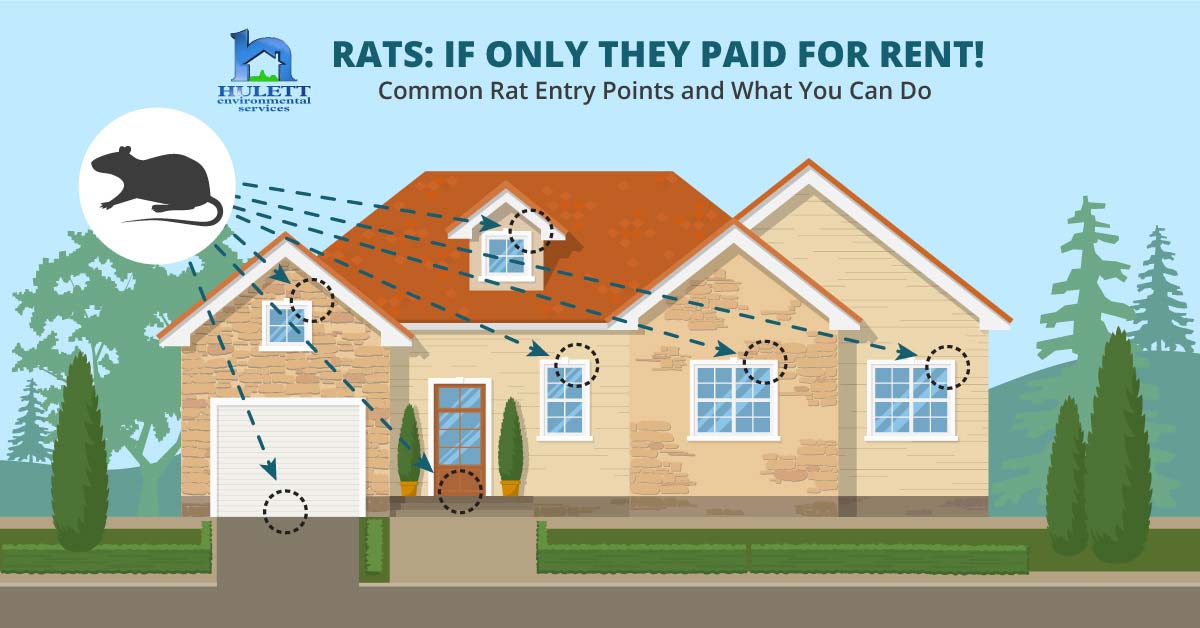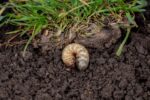
Rats: If Only They Paid for Rent! Common Rat Entry Points
Rodents have always co-existed with humans. Since the Roman Empire rodents and their disease-carrying vectors, such as fleas and ticks have been responsible for most of the major plagues throughout history. Alongside the increasing human population, rodents continue to increase in numbers as well. So, how do you keep rodents out of your South Florida home? This can be a tricky task given the fact that mice can squeeze into your home through dime-sized openings and rats are capable of squeezing through holes the size of a quarter. Rodents are naturally equipped to get into any place they desire to Rodents, armed with teeth stronger than platinum and amazing jaw strength can eat through wood, stucco, cement and even steel. Incredible sounding, yes, but true, nonetheless. Also, rodents must constantly chew to keep their teeth filed down to a manageable size. Rats and mice in your home will chew on anything and everything, including wood, drywall and electrical wiring. Many house fires of undetermined sources point to rodents chewing through electrical wiring to sharpen their teeth and get through holes drilled for wiring in attics. But how do rodents get into your home? The short answer is, anyway they can. Besides squeezing through small holes, crevices and cracks in your home’s foundation, rodents can enter your home through vents, your air conditioner’s line set cover and through drainpipes. As disconcerting as it is, rats can even enter your home through your plumbing by swimming up your toilet. Rodents are excellent swimmers Their swimming abilities explain, in part, how bubonic-infested rats were able to wreak havoc on Great Britain and half of the known world, during the Great Plague in the 1600s. In Erika Engelhaupt’s 2015 National Geographic blog article, she writes about rats entering her home through sewer pipes. Rodents, it turns out, can swim for three days at a time and can survive on food people flush down their toilets, as well as the undigested food in human excrement, if necessary. Capping off sewer lines could result in rodents chewing through your plumbing or dying in your pipes, setting up the perfect nightmare scene for a fly or cockroach infestation. Rodents in your capped plumbing don’t just give up; they tend to pop up somewhere else. In apartment and condo settings, this might be your neighbor’s toilet. Excluding rodents from your home South Florida homeowners can take precautions to exclude rodents from their homes by sealing all cracks, crevices and holes in their foundations and around windows and doors. Additionally, trimming tree limbs and shrubbery away from your home’s exterior eliminates bridges to your attic and other upper areas in your home. Removing all clutter and debris from the exterior of your property, keeping your grass cut short and your outside trash receptacle areas sanitized can make your home uninviting to rodents and other pests. Create an unfriendly environment for rodents on the interior of your home Rodents are resilient but dependent on humans for their sustenance. Mice and rats need the basic essentials that humans do. Your home offers warmth, shelter, food and water to mice and rats in one convenient location. Rodents don’t have to dodge predators, except your cat, in order to set up shop in your attic, walls or basement. In fact, rodents have cohabitated with humans for so long that, according to National Geographic, Norway rats (also known as common city rats) do not exist in the wild. With that in mind, keeping all dry food storage containers tightly sealed in glass, metal or hard plastic containers and thoroughly cleaning food prep and dining areas after every meal can eliminate food sources for rodents. Washing dishes and placing food scraps in sealed trash receptacles can also make your home less inviting to rodents, as can sweeping and/or vacuuming dining area floors after each meal. Repairing or replacing leaky faucets and pipes can reduce rodent water sources, even though rodents can get the water they need to survive and multiply from their food sources. Signs of rodent issues include scurrying and squeaking sounds in your walls and attic, as well as:
- Rodent droppings near food sources
- Chewed food packages
- Rodent sightings
- Sudden fly or cockroach infestations
If you suspect rodents in or around your south Florida home; it’s time to call a professional Hulett Environmental Services suggests contacting trained rodent elimination technicians who know how to handle rodent issues before they become infestations. Using environmentally-conscious techniques and materials, Hulett ensures you and your family responsible rodent removal with the placement of the latest and most effective capture equipment and non-toxic baits. We monitor your home until all rodent activity ceases, sealing rodent entryways and installing entry limiting screens to your pipes and other pathways rodents may use to enter your home. Preventive measures, such as making your home uninviting to rats, mice and other pests can help home pest-proof your sunshine state home. When pest issues arise, contact Hulett at the first sign of household pest activity.



